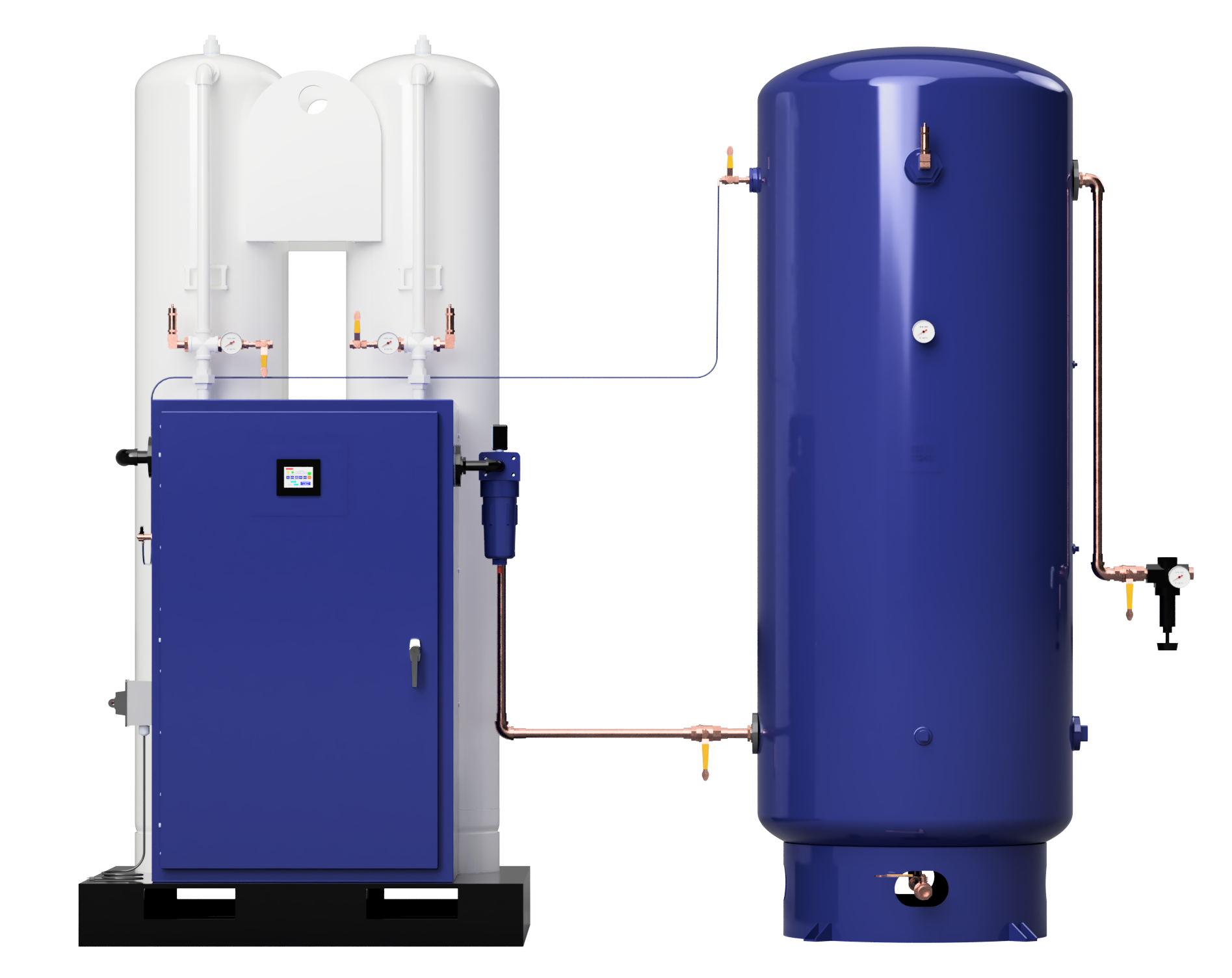What Is a Nitrogen Generator?

A nitrogen generator is a device designed to produce nitrogen gas, predominantly used in various industries and laboratories.
These generators are essential for processes requiring a steady supply of nitrogen gas, enhancing process stability and efficiency. They generate nitrogen from the atmosphere, offering a cost-effective alternative to other nitrogen supply methods. Additionally, the absence of high-pressure gas cylinders improves safety during handling.
It’s crucial to ensure proper ventilation when using nitrogen generators, as nitrogen gas is colorless and odorless and can accumulate in enclosed spaces.
Applications of Nitrogen Generators
Nitrogen generators are versatile and find applications in various sectors:
1. Electronics Industry
Used in semiconductor manufacturing, these generators provide an oxygen- and moisture-free environment, essential for producing high-quality electronic components.
2. Food Industry
Nitrogen gas prolongs food freshness by preventing oxidation. It’s used in packaging and storage to maintain food quality, particularly for long-term preservation.
3. Medical Field
Used for cryotherapy and biological tissue preservation, liquid nitrogen generators play a vital role in various medical applications.
4. Pharmaceutical and Chemical Industry
In chemical and pharmaceutical manufacturing, nitrogen gas helps control oxidation reactions, crucial for maintaining product quality.
Principle of Nitrogen Generators
Nitrogen generators operate using different techniques:
1. Membrane Separation
Separates nitrogen and oxygen from air using a selective membrane, extracting nitrogen molecules.
2. Ammonia Decomposition
Generates nitrogen by heating ammonia (NH3), which decomposes into nitrogen and hydrogen gases.
3. Cooling
Separates nitrogen by cooling air, leveraging the distinct boiling points of nitrogen, oxygen, and argon.
How to Select a Nitrogen Generator
Consider the following when choosing a nitrogen generator:
1. Generation Method
Choose a generation method (air separation, ammonia decomposition, etc.) that suits your application’s needs.
2. Gas Pressure
Select a generator capable of producing the required gas pressure for your process or equipment.
3. Flow Rate
Consider the nitrogen gas flow rate needed for your process or experiment, selecting a generator with an appropriate output capacity.
4. Purity
Ensure the generator can achieve the necessary purity level for your application. Nitrogen purity is typically expressed as a percentage, with higher values indicating greater purity.